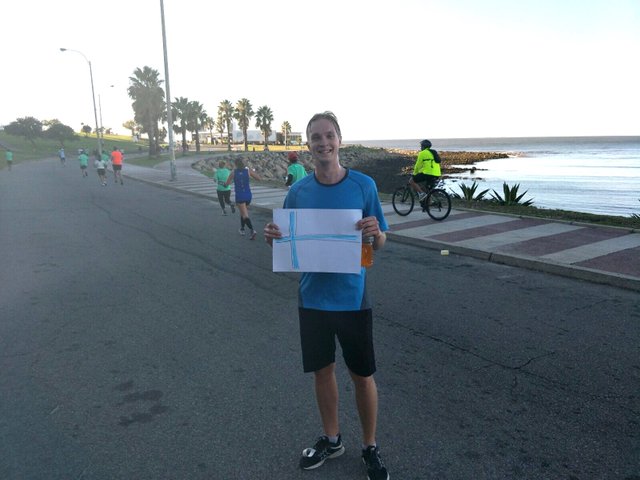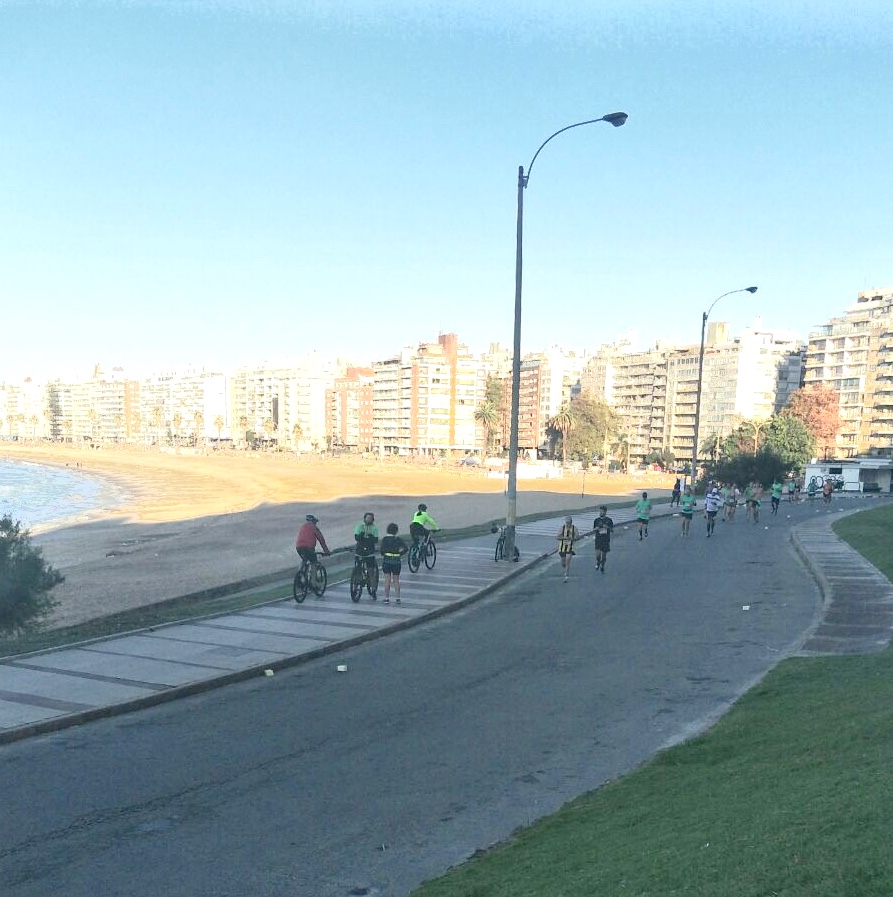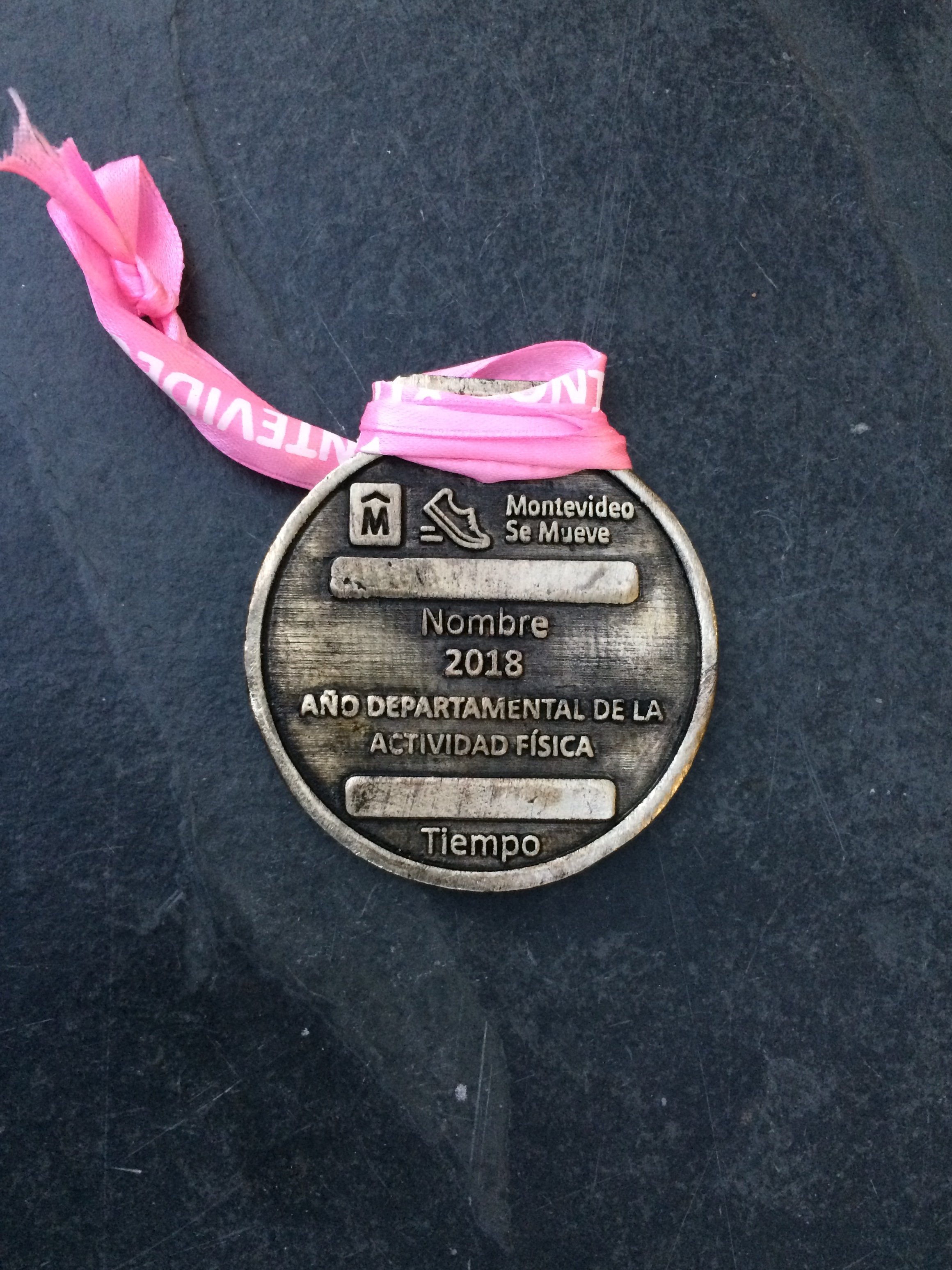For couple of weeks ago I got one of the unusual ideas I tend to get: Why not run the Montevideo Maraton in two weeks?
I have previously ran two marathons, both during my time in military, so the process isn't completely new. However I wondered how my body, used to relaxed civilian lifestyle would survive the 42 km with two weeks training.
During the two weeks I run couple of 12km runs and a test run of 25km which all went well. Unfortunately I became sick for 4 days just a week before the marathon. With 3 healthy days between my illness and the marathon I decided to give it a try.
After a mix-up with the taxi driver I arrived at the scene honourable 20 minutes before the start of the run. Collect your running number, take your bag to locker, drink some water and straight to the start-line. Not exactly the optimal preparation.
0-8km: The most inconvenient part of the marathon
4000 people eager to get moving, trying to find the optimal pace and taking selfies (YES REALLY!). This is the part of a marathon I least like. However you're still full of energy and searching for the optimal rhythm yourself, which makes this somehow manageable.
My numerous (3) fans we're supporting me at approximately 13km mark. At that point I still had energy to smile and time to stop posing for the camera. Thanks for the support guys!!

8-14km: The counting phase
At this stage, you really start to get a grasp of your running, while still high on energy. For me the 10km mark provides the first real opportunity to evaluate my speed and make first estimates of the finishing time. Because I like to run without a watch, I use the kilometres around 10k for making calculations of my speed, the covered distance and the possible range of finishing times in my head. For the kilometres after 10km I do double checks and theoretical scenarios of increased/decreased speed - A great way to kill time actually, if you are into mathematics.
15-25km: The "Ultra-running" phase
Between these kilometres the run becomes routine and feels easy. For some reason I always (falsely) imagine that also the rest of the marathon feels as good, and start wondering why I won't start running ultra-runs of 100 kilometres. The answer is just around the corner.
The route followed the beautiful "La Rambla" beach-street of Montevideo the whole time. Although the whole route was perfectly level, the strong headwind from the sea was consuming.

25-32km: The reality check
You quickly start to understand, why you don't do those crazy ultra-runs. You start feeling the tiredness of your muscles and start to fear the last kilometres between you and the finish line. I usually try to concentrate on something to keep my thoughts off the running. I for example try to remember song lyrics from heart and count the average number of steps it takes me to run for one km.
32-42: PAIN
For a competitive-minded runner like me, there is no avoiding the pain during the last kilometres . If you have managed your speed optimally you should already be dead tired and feeling weak. If you, on the other hand have energy left, this is the time to cut some minutes off from your performances, even if you know it costs you the ability to walk on the next day. Either way, just concentrate on the next 500 or 200 or 100 metres in front of you and push the pain on the backside of your head. Avoid walking until the very last minute: once you start walking, it is hard to stop.
The best sight to a marathon runner.
Finnish: Numbness
For me the whole point of a marathon is to test yourself to the ultimate limits. This means that I have no energy whatsoever left, when I cross the finish line. Usually I just lay the first 10 minutes in the ground trying to catch my breath before even moving from the finishing area. Of course people are different, but honestly I don't understand guys who are able to start a cooling-down run straight after the finish line. If you have energy left, you could have done better on the marathon itself.
Although I don't do marathons for prizes or social status, the heavy, metallic medal is a good reminder of the journey you just been through, and I would lie if I said I wouldn't be pleased to receive it.

Feel free to share your own thoughts and experiences on marathons and other endurance sports!